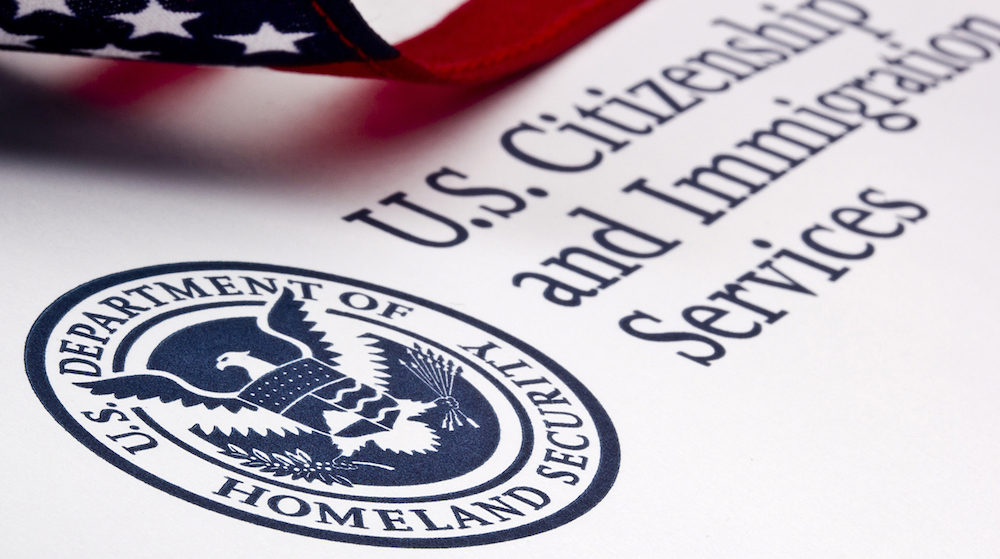 Bill establishes new reporting requirements to find reasons and potential solutions to reduce case backlog
Bill establishes new reporting requirements to find reasons and potential solutions to reduce case backlog
Millions of immigrants face unduly long delays in a getting a reply from US Citizenship and Immigration Services (USCIS) about immigration benefits with the backlog of pending applications increasing exponentially in the last few years.
To address the severe case backlog at the USCIS, Congressman Tony Cárdenas reintroduced The Case Backlog and Transparency Act on Oct 25.
This bill establishes new reporting requirements for USCIS and the Government Accountability Office (GAO) to determine the reasons for the processing delays and find potential solutions to reduce the immigration case backlog, according to a press release.
Read: US to address backlog of visa applications from Indians (September 28, 2022)
“The extreme immigration backlog at USCIS is leaving countless individuals in limbo,” said Cárdenas. “Right now, families in my district and across the country are left waiting weeks, months and even years without a single update on their case or let alone a resolution.
“This isn’t fair to these applicants – they deserve to have the peace of mind that their cases are being handled fairly and timely. A reporting system will improve transparency and help USCIS find the root cause of these processing delays,” he said.
“My hope is that accountability and greater awareness of what isn’t working at USCIS will lead to solutions in the future,” Cárdenas added.
Between 2015 and 2020, the number of cases awaiting a decision at USCIS grew from 3.2 to 5.8 million. According to USCIS’s own data, processing times are increasing, leaving applicants waiting for a decision for well over seven months for most types of immigration benefit applications.
The Case Backlog Transparency and Accountability Act establishes quarterly backlog reporting requirements. It requires DHS, at the end of each of the first three quarters of each fiscal year, to publish on its website, and submit to designated Congressional committees, a report on the case backlog.
Read: Bill to reduce massive green card backlog introduced in Congress (April 11, 2022)
The quarterly report must Identify the number of pending immigration benefit applications, the net backlog, and the gross backlog and describe the active suspense categories and the number of cases pending in each category.
It should also list the average processing time for each type of immigration benefit application along with any change in that time relative to the prior quarter.
The bill establishes a biennial GAO report featuring analysis of factors contributing to the case backlog, including an assessment of the impact of the agency’s own policies on processing times.
It also seeks an evaluation of USCIS’s efforts to eliminate the backlog and to ensure accurate and consistent adjudications and ensures that USCIS and GAO publish these reports on their websites.
The legislation is endorsed by the American Immigration Lawyers Association (AILA), Coalition for Humane Immigrant Rights of Los Angeles (CHIRLA) and National Partnership for New Americans (NPNA).
“For years, the families, vulnerable individuals, and U.S. businesses that our more than16,000 members regularly represent have suffered devastating consequences from USCIS’s processing delays,” said American Immigration Lawyers Association (AILA) Executive Director Benjamin Johnson. “Families have been separated, businesses have lost key employees, and vulnerable individuals remain in jeopardy.”
Reducing backlogs by making USCIS accountable to the public is laudable and an important first step, said Immigration Impact. However, the bill is but one small step toward addressing the myriad number of issues in the nation’s immigration system, it said.
Read: Congress Proposes the Case Backlog and Transparency Act to Tackle USCIS Backlogs (November 11, 2022)
Congress must also help the agency by providing more direct funding for backlog reduction, something that the agency normally would be required to pay for through increased fees on applicants, Immigration Impact said.
Congress should also expand the pathways for legal immigration because the current immigration laws do not meet the nation’s labor needs or humanitarian aspirations, it said.
“Without such reform, any ameliorative measures the agency adopts will only provide a temporary stopgap to the broader problems caused by a legal immigration system which hasn’t been significantly updated since 1990,” Immigration Impact said.




1 Comment
The Biden Administration is doing best to do for Immigrants Benefits and its Legalization Impact for Un Document persons living abroad but I am struggling since last 1978 to to till date to get American Legal Status I could not get my legal status as my voice are no heard. I am living abroad. Voted since last 2008 to 2012 as Overseas Absentee Voter but I am being neglected from its Legal Processor. I am undocumented abroad Registrar of Voter denied in each election time arbitrarily and I become confused. This year at this Mid term election I took part as FWAB online Voter participation from abroad and I will remain for American benefits.